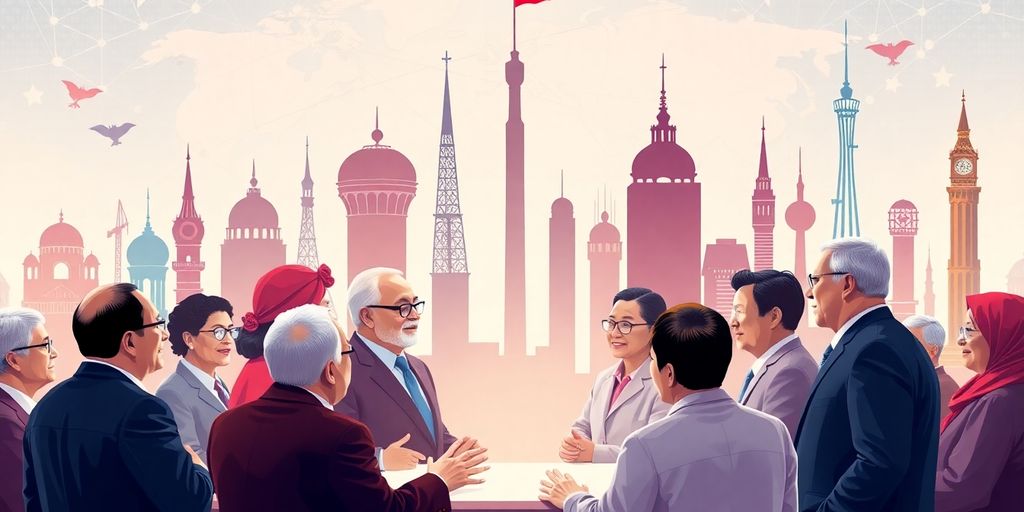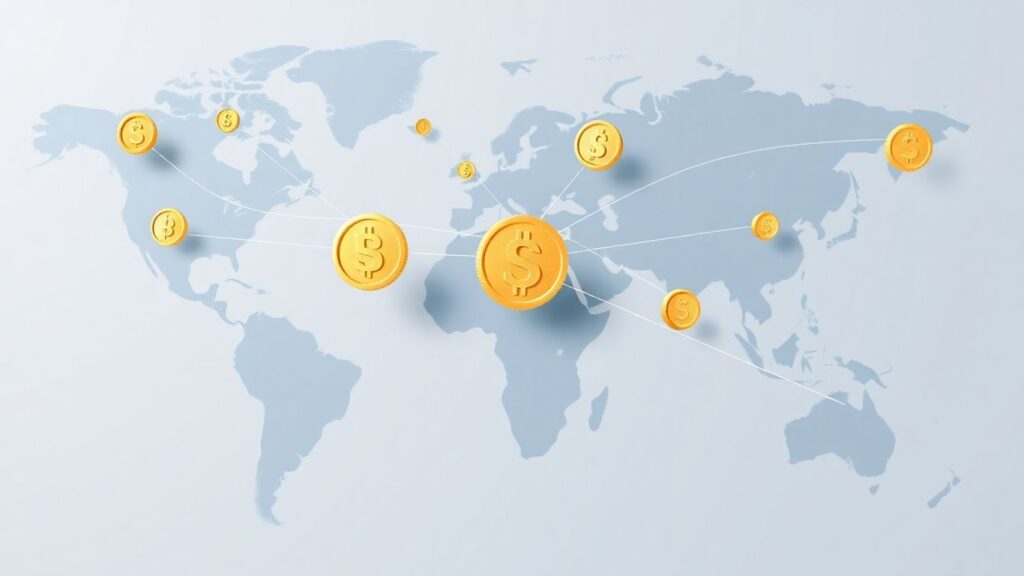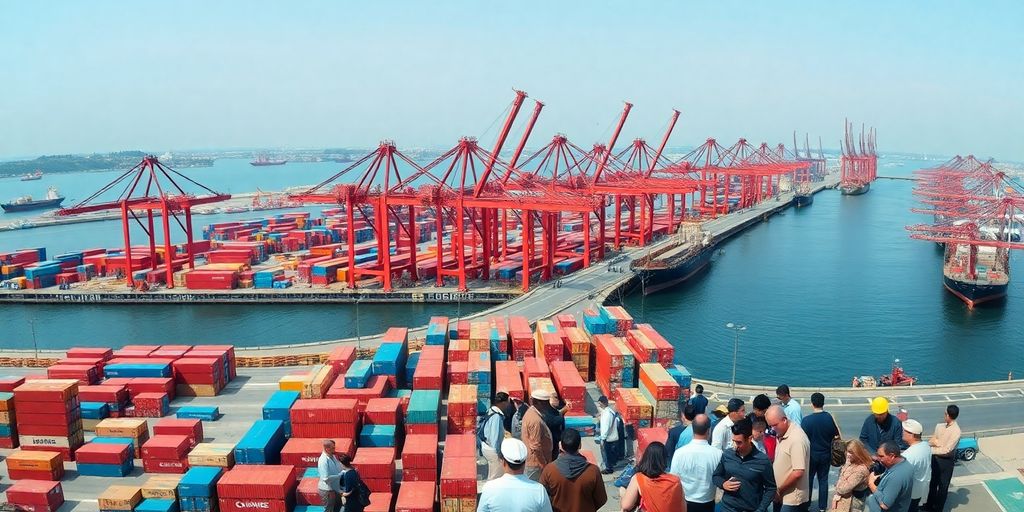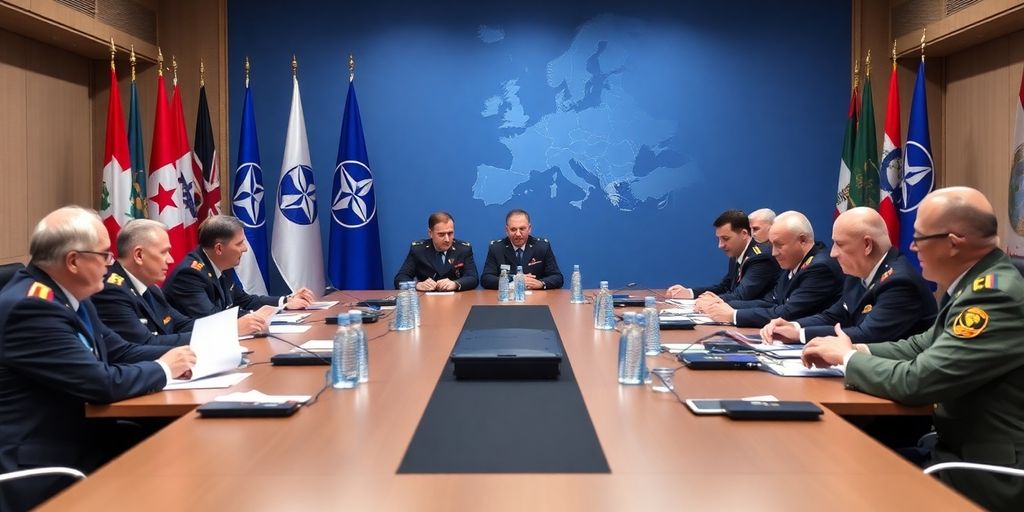Navigating the Challenges of a Multipolar World Order: Strategies for Global Cooperation in 2024

In 2024, the world seems more unpredictable than ever. We’re living in a time where no single country calls all the shots. Instead, power is spread out among many nations, each with its own agenda. This multipolar world order is changing how countries interact, trade, and tackle global problems. With the old rules no longer applying, countries are figuring out new ways to cooperate and compete. This article dives into the strategies that might help them work together better, despite the challenges.
Key Takeaways
- The multipolar world is here to stay, reshaping global power dynamics.
- Countries need to rethink their alliances and partnerships.
- Economic and environmental challenges require global cooperation.
- Security threats are more complex, needing new solutions.
- Cultural understanding is key in a diverse world.
Understanding the Multipolar World Order

Historical Context of Global Power Shifts
The world has seen its fair share of power shifts over the years. After World War II, the U.S. and the Soviet Union were the big players, dominating global affairs. But fast forward to today, and things look very different. The idea of a multipolar world is all about having multiple centers of power, rather than just one or two. This change didn’t happen overnight; it’s been a gradual process, with countries like China and India rising in influence. These shifts aren’t just about military might; they’re about economic power, cultural influence, and technological advancements too.
The transition from a unipolar to a multipolar world is reshaping how nations interact, creating both challenges and opportunities for global cooperation.
Key Players in the Current Global Landscape
In today’s world, we have several key players shaping international relations. The U.S. is still a major force, but it’s not alone. China has rapidly grown its economy and military, making it a formidable player on the global stage. Russia, with its vast resources and strategic military moves, remains influential. Then there are the middle powers like India, Brazil, and South Africa, each wielding significant regional influence. These countries are not just playing by the old rules; they’re setting new ones, often challenging the status quo.
- China: Economic powerhouse with growing military capabilities.
- Russia: Strategic military influence and vast natural resources.
- India: Rising economic and technological hub.
Impact of Multipolarity on International Relations
Multipolarity changes the game for international relations. With more players at the table, the dynamics are more complex. Countries are forming new alliances and partnerships, sometimes outside traditional Western frameworks. This can lead to more cooperation in some areas, like climate change, but also more tension in others, like trade and security. As power becomes more distributed, the traditional rules of engagement are being rewritten, requiring adaptive strategies from all nations involved.
- Increased regional conflicts as power balances shift.
- New economic alliances forming, challenging existing trade norms.
- Greater emphasis on diplomacy and negotiation to manage diverse interests.
Economic Implications of a Multipolar World
Trade Dynamics and Economic Alliances
In today’s world, trade is not just about exchanging goods. It’s about forming alliances and partnerships that can shift global power. The rise of multipolarity has led to a more complex network of trade relationships. Countries are now looking beyond traditional partners, exploring new markets, and forming regional trade agreements. This shift is partly driven by emerging economies like India and Brazil, which are becoming significant players on the global stage.
- The expansion of BRICS, which now includes more countries, illustrates this shift.
- There’s a noticeable trend towards de-dollarization in trade, with countries opting for local currencies.
- Technological advancements are also reshaping trade dynamics, making it easier for countries to engage in cross-border transactions.
Challenges in Global Economic Governance
With more players in the game, managing global economic policies is getting trickier. The traditional institutions like the IMF and World Bank are facing challenges in adapting to this new order. There’s a growing call for reforms to make these bodies more inclusive and representative of the current global landscape.
- Emerging economies demand a bigger voice in decision-making processes.
- There’s a need for more flexible policies that can cater to diverse economic realities.
- Balancing national interests with global economic stability remains a significant hurdle.
Opportunities for Emerging Economies
The multipolar world offers a unique opportunity for emerging economies to assert themselves. With the global power structure becoming more distributed, these countries have the chance to influence international policies and economic trends.
In this new landscape, emerging economies are not just passive players but active participants shaping the future. They are leveraging their growing influence to secure better trade deals and investments, which in turn fuels their development.
For instance, this analysis highlights how emerging economies are redefining global trade patterns, paving the way for a more balanced world economy. As these nations continue to grow, their role in the global economy will only become more pronounced, offering new avenues for cooperation and development.
Security Concerns in a Multipolar Era
Regional Conflicts and Global Stability
In today’s multipolar world, regional conflicts can quickly escalate, affecting global stability. From the war in Ukraine to tensions in the South China Sea, these conflicts reflect shifting power dynamics, where traditional diplomatic solutions often fall short. Countries are increasingly relying on military strength to resolve disputes, which can lead to prolonged instability. As power becomes more dispersed, the role of middle powers like Brazil and Türkiye becomes crucial in mediating and stabilizing these regions.
The Role of International Organizations in Conflict Resolution
International organizations such as the United Nations and NATO play a critical role in conflict resolution. However, their effectiveness is often challenged by the diverse interests of member states. In a multipolar world, where power is not concentrated, these organizations must adapt to a more collaborative approach. Implementing new strategies, like those proposed in a new global initiative, could enhance their ability to manage conflicts and foster cooperation.
Cybersecurity Threats and Global Cooperation
Cybersecurity has emerged as a major concern in the multipolar era. With more actors on the global stage, the risk of cyberattacks has increased, targeting both national infrastructure and private sectors. Countries must collaborate to develop robust cybersecurity frameworks. A collective approach can help in sharing intelligence and resources, making it harder for malicious entities to exploit vulnerabilities.
The challenge lies in balancing national security with international cooperation, as nations navigate the complexities of a world where power is spread across multiple centers.
Environmental Challenges and Global Cooperation
Climate Change and International Policy
Climate change is reshaping our world, and it’s not just about the weather getting hotter. 2023 was the hottest year on record, bringing extreme events like droughts in East Africa and wildfires in Canada. The world is grappling with how to tackle these challenges together. Yet, global cooperation is sluggish, partly because of geopolitical tensions. Nations are wary of losing their economic edge by cutting fossil fuels too fast or by funding climate solutions for others. It’s a tricky balance, but international gatherings like the conference in Riyadh aim to enhance global cooperation by addressing issues like desertification and land degradation.
Collaborative Efforts in Sustainable Development
Working together on sustainable development is essential for a healthier planet. Countries are forming alliances to push for cleaner technologies and sustainable practices. For example, the EU is trying to align its Green Deal with global goals, despite facing challenges in harmonizing its policies. This kind of collaboration can lead to innovative solutions that benefit everyone, but it requires commitment and a shared vision.
The Role of Technology in Environmental Solutions
Technology plays a huge role in tackling environmental issues. From renewable energy sources to advanced recycling methods, tech innovations are key. But these solutions need to be accessible to all nations, not just the wealthy ones. Sharing technology and knowledge can help bridge the gap and ensure that everyone can contribute to a sustainable future.
In a world where environmental challenges know no borders, international cooperation is not just beneficial—it’s necessary. By pooling resources and knowledge, nations can tackle these issues more effectively than they could alone.
Cultural and Social Dimensions of Multipolarity
Cultural Exchange and Global Understanding
In a world where multiple powers hold sway, cultural exchange becomes a powerful tool. It allows nations to share and appreciate each other’s traditions, ideas, and innovations. This global dialogue fosters mutual respect and understanding, which is crucial in a multipolar world. Through cultural festivals, educational exchanges, and art collaborations, countries can bridge gaps and build stronger ties. This is more than just sharing food or music—it’s about creating a shared humanity.
The Influence of Social Movements on Global Policies
Social movements have a way of crossing borders, influencing policies far beyond their origin. Whether it’s climate activism, human rights campaigns, or digital privacy concerns, these movements can reshape international agendas. They push governments to rethink policies and often lead to significant changes on a global scale. As these movements gain momentum, they highlight issues that might otherwise be ignored in traditional diplomatic channels.
Addressing Inequality in a Diverse World
Inequality remains a significant challenge in our interconnected world. Economic disparities, access to education, and healthcare differences are stark reminders of the work still needed. Addressing these issues requires a cooperative approach, where countries work together to create fairer systems. This might involve sharing resources, technology, and expertise to ensure that no one is left behind. The goal is to create a world where everyone has a fair shot at success, regardless of where they come from.
As the global landscape shifts, the importance of cultural and social dimensions in international relations cannot be understated. Embracing diversity and fostering inclusivity are not just ideals but necessary strategies for a harmonious future.
Strategies for Enhancing Global Cooperation

Diplomatic Initiatives and Peacebuilding
In a world where power is spread across multiple nations, diplomacy is more important than ever. Countries need to engage in open dialogues and negotiations to prevent conflicts and build peace. Effective diplomatic initiatives can reduce tensions and foster global stability. Nations must adopt adaptive diplomacy, which means being flexible and ready to change strategies as the global landscape shifts. This approach helps in addressing grievances and resolving disputes, which can prevent conflicts from escalating.
Strengthening Multilateral Institutions
Multilateral institutions play a critical role in maintaining global order. They offer platforms for countries to collaborate on shared challenges like climate change, security, and economic development. To strengthen these institutions, it’s essential to ensure they are inclusive and represent diverse global perspectives. This will encourage nations to engage more actively and contribute to collective goals. Enhancing the effectiveness of these institutions can also lead to better governance and accountability on the international stage.
Innovative Approaches to Global Challenges
Addressing global challenges requires creativity and innovation. Nations can explore new forms of partnerships, such as public-private collaborations, to tackle issues like cyber threats and public health crises. Engaging with a wide range of stakeholders, including non-governmental organizations and the private sector, can amplify the impact of diplomatic efforts. Moreover, embracing digital diplomacy and leveraging technology can facilitate better communication and cooperation among nations.
In a multipolar world, global cooperation is not just a choice but a necessity. By adopting flexible strategies and embracing innovation, nations can work together to create a more stable and prosperous future for all.
The Future of Global Leadership
Evolving Roles of Nation-States
In today’s world, the influence of nation-states is shifting. Countries like Brazil, Türkiye, and the Gulf states are stepping up as significant players. They’re not superpowers like the US or China, but they’ve got their own strengths. These middle powers are shaping the global scene by balancing regional and international roles. They often choose strategic partnerships based on their own needs, rather than sticking to traditional alliances.
The Impact of Non-State Actors
Non-state actors are becoming more important in global politics. We’re talking about organizations, businesses, and even influential individuals. They can push for change and influence policies, sometimes more effectively than governments. The Forum of Young Global Leaders, celebrating its 20th anniversary in 2024, is a great example. It brings together diverse voices to tackle global challenges.
Visionary Leadership in a Multipolar World
Leadership today isn’t just about power; it’s about vision. Leaders need to understand complex global issues and work across borders. They must be adaptable, embracing new ideas and technologies to solve problems. In a multipolar world, visionary leaders are those who can unite different interests and drive cooperation, paving the way for a more interconnected future.
As global dynamics shift, the role of leadership evolves. In a world with many power centers, the ability to collaborate and innovate becomes more crucial than ever.
Conclusion
As we look ahead to 2024, the world stands at a crossroads in a multipolar era. The traditional powerhouses are no longer the sole architects of global narratives. Instead, a tapestry of medium-sized powers is weaving its own stories, influencing regional and global dynamics. This shift brings both challenges and opportunities. Nations must be nimble, ready to adapt their diplomatic playbooks to a landscape that’s constantly changing. The upcoming elections will likely add another layer of complexity, potentially reshaping alliances and strategies. In this evolving world, cooperation isn’t just a nice-to-have; it’s a necessity. By embracing diverse perspectives and working together, countries can navigate the uncertainties of this new order and strive for a more stable and prosperous future. It’s a tall order, but with thoughtful diplomacy and open dialogue, it’s within reach.
Frequently Asked Questions
What does a multipolar world mean?
A multipolar world is when power is spread across many countries, not just one or two. This means several nations have a big say in global decisions.
Why is the world becoming multipolar?
The world is becoming multipolar because more countries are gaining power and influence, challenging the traditional leaders like the U.S. and Europe.
How does a multipolar world affect trade?
In a multipolar world, trade becomes more complex as countries form new alliances and trade agreements, which can change who trades with whom.
What are the security concerns in a multipolar world?
Security concerns include regional conflicts, cybersecurity threats, and the need for international cooperation to keep peace.
How can countries work together in a multipolar world?
Countries can work together by joining international organizations, forming alliances, and focusing on common goals like climate change and peacekeeping.
What role do non-state actors play in a multipolar world?
Non-state actors like multinational companies and NGOs can influence global policies and help shape international relations.








Responses